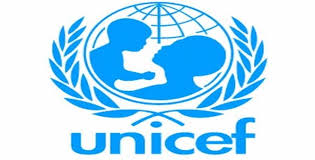The UN Children’s Fund (UNICEF) says 80 per cent of maternal deaths are caused by unhygienic delivery practices at Primary Health Care Centres (PHCs) nationwide.
Mr Bioye Ogunjobi, UNICEF Water, Sanitation and Hygiene (WASH) Specialist, made the disclosure at the national stakeholders’ workshop on “Draft Hygiene Promotion Strategy and Guidelines” in Abuja.
According to him, effective provision of WASH facilities will go a long way to promote safe healthcare.
He explained that in Nigeria, many PHCs do not adhere to minimum WASH standards to provide adequate and safe levels of healthcare.
He added that “reports say 80 per cent of maternal deaths are caused by unhygienic delivery practices in PHCs across the country.
“However, for PHCs to work well, they must have good source of water, safe excreta disposal, drainage, hospital waste and hygiene promotion facilities.’’
The WASH specialist said it was worthy to note that inadequate access to water, sanitation and hygiene facilities were known to cause 10 out of 100 hospitalisations in Nigeria.
He stressed the need for stakeholders to see access to WASH as a human right, saying “this plays a vital role in attaining universal health coverage.’’
Ogunjobi said it was saddening to see that there were no specific policies on hygiene promotion in PHCs as it were.
He said if healthcare facilities were overcrowded, lacked toilets, access to water, patients and health workers may be exposed to danger.
Mr Job Ominyi, a WASH officer with UNICEF, also said Nigeria needs to have a hygiene promotion strategy, saying access to water and sanitation was central to development.
He said that with effective hygiene promotion safety, 50 per cent transmission of water and excreta-related diseases would be reduced to the barest minimum.
Ominyi said UNICEF was carrying out a research on Menstrual Hygiene Management to ascertain the level of awareness on myths and practices.
This, Ominyi said, would enable the organisation know how to intervene to reduce negative beliefs and taboos associated with menstruation in some communities.
He said Nigeria was one of 14 countries carrying out such research, saying Katsina, Anambra and Ogun were the targeted states.
He urged Nigerians to create accessible sanitation facilities, privacy, access to water supply and effective waste disposal for menstruating girls.
NAN reports that the workshop was jointly organised by the Federal Ministry of Water Resources and UNICEF to seek ways to enable Nigeria to have a hygiene promotion strategy. -NAN













